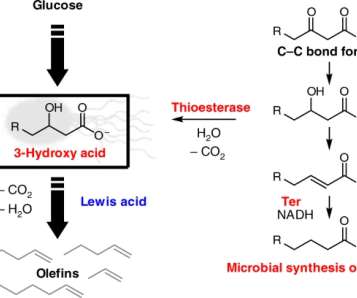Researchers develop dual cellular-heterogeneous catalyst technology to produce olefins from plant sugar
Green Car Congress
NOVEMBER 29, 2021
A team of researchers from the US NSF Center for Sustainable Polymers based at the University of Minnesota Twin Cities has demonstrated the use of a dual cellular–heterogeneous catalytic strategy to produce olefins from glucose. Wang et al. —Paul Dauenhauer, co-author.





















Let's personalize your content